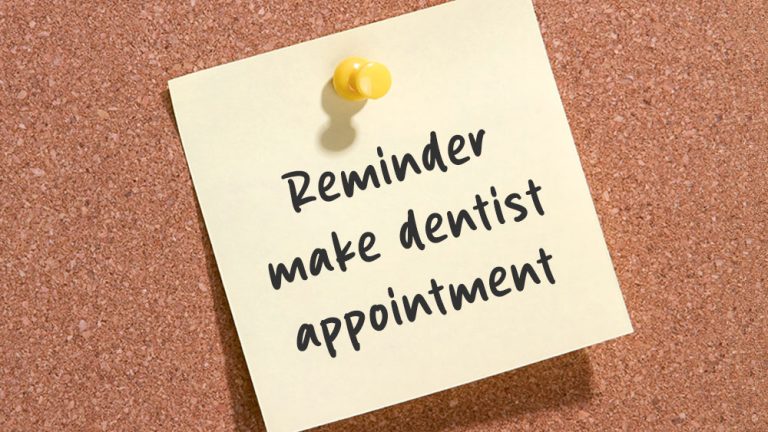
Different Types of Dentist
Dentistry is not a one-size-fits-all field; it’s a diverse realm of specialized professionals catering to unique oral health needs. There are many different types of dentistry and it is important to shed light on their roles, specializations to help you on choosing the right dentist for your oral health concerns.
Understanding the Diverse World of Dentistry
Dentistry is a multifaceted field encompassing various specialties, each addressing specific aspects of oral health. It’s essential to understand this diversity to make informed decisions about your dental care.
Importance of Specialization in Dentistry
Specialization in dentistry plays a vital role in advancing patient care and the overall field. Here’s why it’s essential:
- Expertise: Specialized dentists acquire in-depth knowledge and skills in their chosen area, ensuring high-quality care.
- Tailored Solutions: Specialization allows for focused treatments, addressing specific oral health issues with precision.
- Advancements in Healthcare: Specialized research and practices contribute to advancements that benefit the entire dental community.
Understanding the importance of specialization helps patients appreciate the depth of expertise available to them.
Types of Dentists
1. General Dentist
Role: General dentists are primary oral healthcare providers, offering a wide range of services, including routine check-ups, cleanings, and basic dental procedures.
Why Choose a General Dentist:
- Comprehensive Care: General dentists can address a broad spectrum of oral health needs.
- Preventive Focus: They emphasize preventive care to maintain optimal oral health.
- Referral Hub: If specialized care is needed, general dentists can provide referrals to specialists.
2. Orthodontist
Role: Orthodontists specialize in aligning teeth and jaws, using braces, aligners, and other devices to correct misalignments.
Why Choose an Orthodontist:
- Alignment Solutions: Orthodontists focus on straightening teeth and improving bite alignment.
- Aesthetic Benefits: Orthodontic treatments enhance the overall appearance of the smile.
- Prevention of Issues: Proper alignment contributes to improved oral health by preventing issues like uneven wear.
3. Periodontist
Role: Periodontists specialize in preventing, diagnosing, and treating gum diseases and conditions.
Why Choose a Periodontist:
- Gum Health Expertise: Periodontists are specialists in maintaining healthy gums.
- Advanced Treatments: They perform procedures such as scaling, root planing, and gum surgeries.
- Management of Complex Cases: Periodontists handle advanced gum conditions and diseases.
4. Oral Surgeon
Role: Oral surgeons specialize in surgical procedures related to the mouth, face, and jaw.
Why Choose an Oral Surgeon:
- Complex Extractions: Oral surgeons handle challenging tooth extractions.
- Maxillofacial Procedures: They perform surgeries related to the face and jaw.
- Implant Placement: Oral surgeons are often involved in dental implant procedures.
5. Pediatric Dentist
Role: Pediatric dentists focus on providing oral care to infants, children, and adolescents.
Why Choose a Pediatric Dentist:
- Child-Friendly Atmosphere: Pediatric dentists create environments tailored to children.
- Preventive Education: They educate parents and children on preventive oral care.
- Early Intervention: Pediatric dentists address oral health issues in their early stages.
6. Endodontist
Role: Endodontists specialize in the diagnosis and treatment of dental pulp and root issues.
Why Choose an Endodontist:
- Root Canal Therapy: Endodontists excel in performing root canal treatments.
- Preserving Natural Teeth: They focus on saving damaged or infected teeth.
- Pain Management: Endodontists address tooth pain and discomfort.
7. Prosthodontist
Role: Prosthodontists specialize in restoring and replacing missing teeth.
Why Choose a Prosthodontist:
- Restorative Expertise: Prosthodontists excel in restoring dental function and aesthetics.
- Dental Prosthetics: They design and place crowns, bridges, and dentures.
- Cosmetic Enhancements: Prosthodontists focus on improving the overall appearance of the smile.
8. Cosmetic Dentist
Role: Cosmetic dentists concentrate on enhancing the aesthetic aspects of smiles.
Why Choose a Cosmetic Dentist:
- Aesthetic Improvements: Cosmetic dentists perform procedures like teeth whitening and veneers.
- Smile Makeovers: They create customized plans for comprehensive smile enhancements.
- Boosting Confidence: Cosmetic dentistry enhances self-esteem and confidence.
9. Oral Pathologist
Role: Oral pathologists study and diagnose diseases affecting the oral and maxillofacial regions.
Why Choose an Oral Pathologist:
- Disease Diagnosis: Oral pathologists identify and diagnose oral diseases.
- Research Contributions: They contribute to advancements in understanding oral health conditions.
- Collaborative Role: Oral pathologists often work in collaboration with other dental specialists.
10. Public Health Dentist
Role: Public health dentists focus on community-based preventive measures and oral health education.
Why Choose a Public Health Dentist:
- Community Impact: Public health dentists work towards improving overall oral health in communities.
- Preventive Programs: They develop and implement preventive dental programs.
- Health Advocacy: Public health dentists advocate for policies promoting oral health.
Understanding the roles and expertise of each type of dentist is critical for making informed decisions about oral healthcare.
How to Choose the Right Dentist
Choosing the right dentist involves considering various factors to ensure you receive the most appropriate care. Here are key considerations:
- Specific Oral Health Needs: Identify the type of dental care required, whether it’s routine check-ups, orthodontic treatment, or specialized procedures.
- Referrals and Recommendations: Seek recommendations from friends, family, or other healthcare professionals. Referrals often come from those who have had positive experiences.
- Reviewing Credentials: Ensure the dentist has the necessary qualifications and certifications for the required procedure. Check for affiliations with reputable dental associations.
Understanding your oral health needs and preferences is paramount to making an informed decision about the right dentist for you.
Frequently Asked Questions
What is the role of a general dentist?
General dentists serve as primary oral healthcare providers, addressing a broad range of dental needs. They perform routine check-ups, cleanings, and basic dental procedures.
When should I see an orthodontist?
You may need to see an orthodontist if you have issues with the alignment of your teeth or jaw. Common signs include crowded or crooked teeth, difficulty chewing, or speech problems.
What procedures does an oral surgeon perform?
Oral surgeons perform a variety of procedures, including tooth extractions, jaw surgeries, and facial reconstructive surgeries. They address complex oral and facial conditions.
How do I prepare for Dental School Interviews?
The preparation for dental school interviews is important and takes multiple steps.
Key Takeaways
The world of dentistry is diverse, offering a range of specialists to cater to every oral health need. Whether you require the comprehensive care of a general dentist, the precision of an orthodontist, or the expertise of a prosthodontist, understanding the roles of different types of dentists empowers you to make informed choices about your oral healthcare. Remember, maintaining optimal oral health is a collaborative effort between you and your chosen dental professional. Choose wisely, prioritize preventive care, and embrace the journey towards a healthy and beautiful smile.



